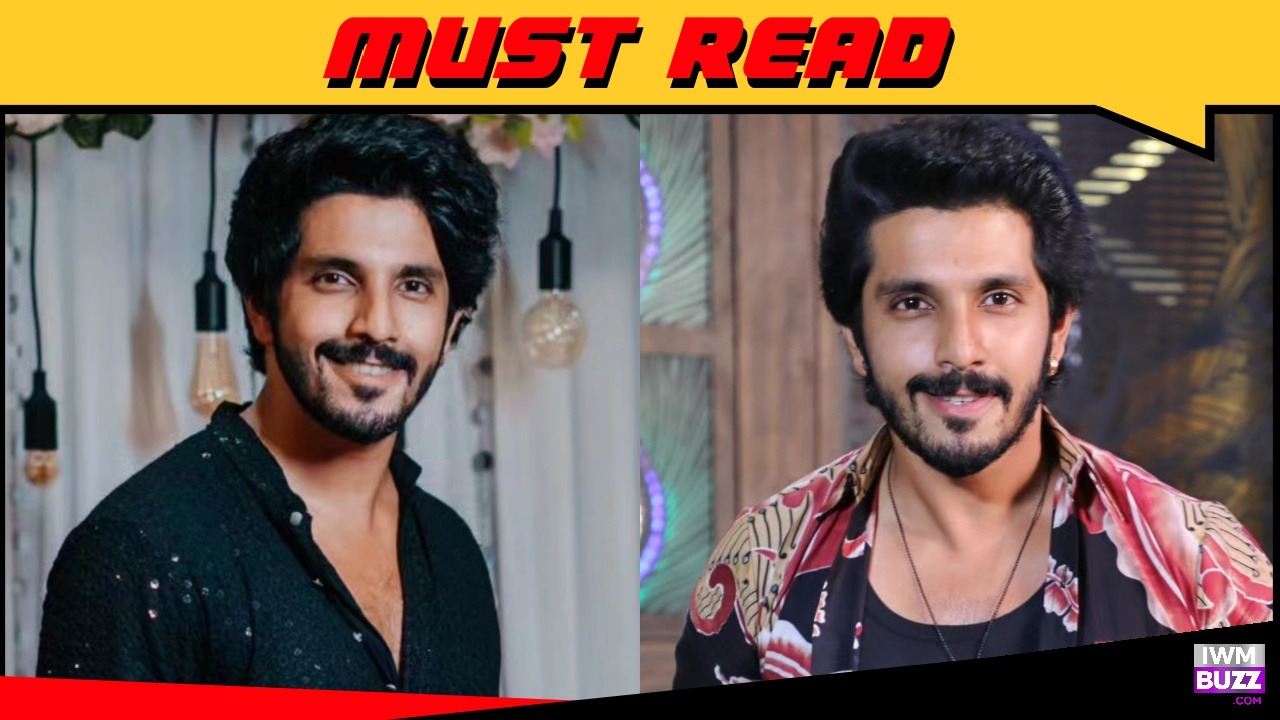Popular actor Kanwar Dhillon who plays the male lead in Star Plus’ Udne Ki Aasha, produced by Rahul Tewary and Rolling Tales Production, has always made the best of choices when it comes to exploring the versatile performances that he can deliver. As Sachin Deshmukh, he is loved and adored by one and all in the show.
On the occasion of International Men’s Day, IWMBuzz.com get talking to Kanwar about how he has successfully managed to play memorable roles in television shows that are otherwise prone to more women-oriented concepts.
Kanwar talks about him being lucky as Sachin is a huge exception.
Read on.
Talking about television, most of the projects on TV are women-oriented. Amidst this, how challenging has it been for you to look for roles where you have the meat to perform and prove yourself?
Sachin Deshmukh in Udne Ki Aasha is an exception, and characters like him are rarely written for male actors on TV. I am glad to be one of the lucky few who has had the opportunity to play such a unique character on screen, one that is loved by all. Right from the time of narration, I knew in my heart that this was a role I had to accept. I was waiting for something like this, and I immediately knew I had to say yes to the show and work on building this character. From my very first meeting, Sachin Deshmukh excited me. It was precisely the kind of role I wanted to take on after Pandya Store, and I am grateful the right opportunity came to me at the right time.
Sachin Deshmukh has been an exception, considering that he has unusual traits that a normal man has. Can you elaborate on the prominence his character has got in the show?
I don’t think I need to emphasize the prominence of this character because, from the very beginning, it was designed as a significant role—both on paper and in the story. What I bring to the table as an actor is what eventually shaped the character into what you see on screen. A great story and narrative helped me immensely in building this role. I have to give full credit to my producers and writers for creating such a well-crafted character. They provided me with ample material to explore, allowing me to add subtle nuances and variations to my performance. I feel blessed to have been part of such an incredible team.
Equality in script needs to be there for both the leading men and women irrespective of any platform they act for. What is your take on this?
Equality in scripts is essential for both men and women. As an actor, if I have the privilege of portraying my thoughts and views through a character like this, I feel truly fulfilled.
With Udne Ki Aasha, the narrative connects deeply with the audience because of its relatable scenarios. Sachin, being Sachin, often lets his ego get in the way and refuses to admit when he’s wrong. However, his partner Sailee helps him see the reason, and he apologizes sincerely. Similarly, when Sailee is in the wrong, Sachin plays the same role in her life. This balance makes the show relatable. It’s not a typical drama where the woman is always crying or constantly portrayed as being at fault. Instead, the story allows for an equal dynamic between the characters, which I feel is a refreshing change.
How have you handled offers that have not had enough meat with respect to the male lead?
When I receive an offer or hear a narration that doesn’t resonate with me, I respectfully decline, making my views clear. I believe in taking on projects that I am passionate about because, at the end of the day, you need to enjoy what you do. I have said “no” to more work than I have said “yes” to, and I have handled it gracefully. My career trajectory and the variety of roles I have played speak for themselves. I have always chosen projects where I know I can shine, whether as a solo lead or in an ensemble.
For instance, I did a show called Ek Aastha Aise Bhi, one of the most beautiful projects I’ve been a part of. It told the story of Aastha, an atheist who falls in love with Shiv, a Shiv devotee whose family has a temple in their home. The show beautifully portrayed the best of both worlds. Although it aired in an odd time slot and many prime-time viewers missed it, the show continues to find an audience on Hotstar, and I still receive messages about it. I’m proud of my choices, and I hope people continue to watch and resonate with my work, even years from now.
How do you think the future holds for the leading men, especially in TV which is very women-oriented?
The present, past, and future of leading men on TV have always been promising. Times are changing, and with these changes, better stories and shows are emerging. While TV has traditionally been considered a women-oriented medium, I believe projects like Udne Ki Aasha and Pandya Store are breaking that stereotype. These stories are loved by the audience, and I hope to see even more diverse content on TV.
This positive shift is also due to the reach of streaming platforms, which bring TV shows to OTT audiences. I am thrilled to be part of this change and to experiment as a leading man. I hope to continue setting an example and inspiring others to embrace such opportunities.


